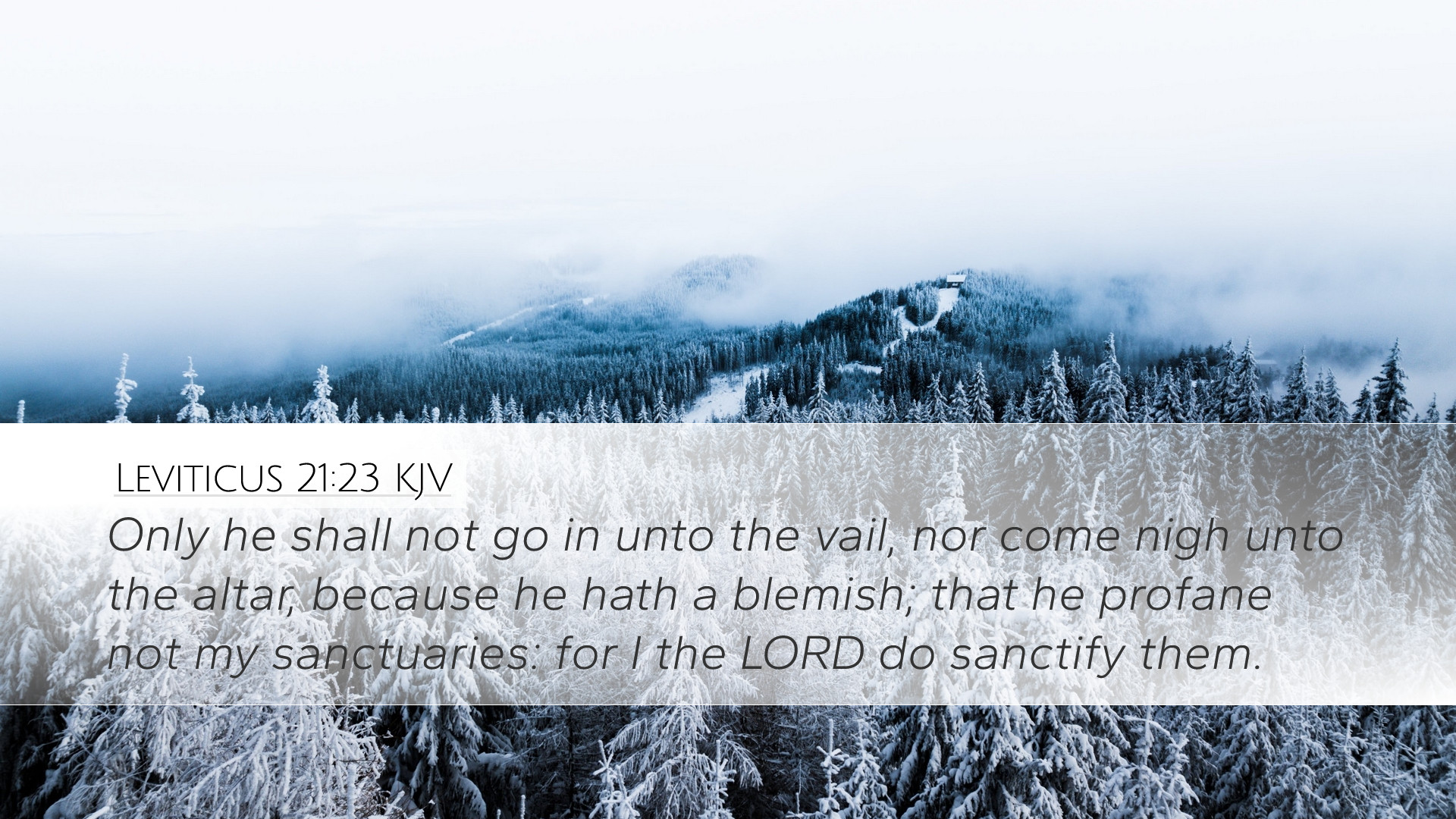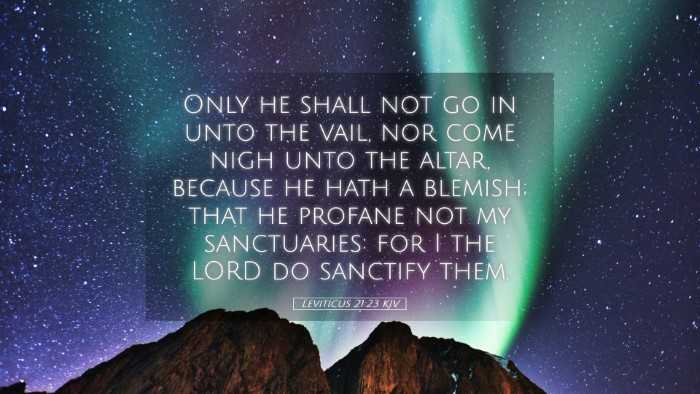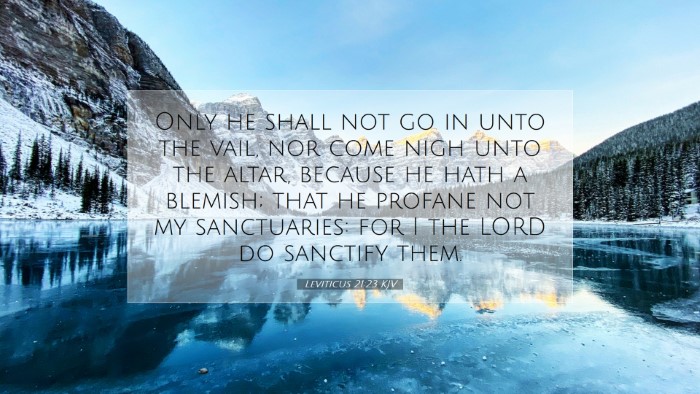Commentary on Leviticus 21:23
Verse Context: Leviticus 21:23 states, "But he shall not go in unto the vail, nor come nigh unto the altar, because he hath a blemish; that he profane not my sanctuaries: for I the LORD do sanctify them." This verse sits within the broader context of the Levitical laws concerning the holiness required of priests who serve in the temple of God.
Introduction
This verse is significant in understanding the principles of holiness, sanctification, and the role of the priesthood in the Old Covenant. In the framework of biblical scholarship, the commentary provided by respected theologians such as Matthew Henry, Albert Barnes, and Adam Clarke offers profound insights into its spiritual and practical implications.
Insights from Matthew Henry
Holiness and Separation: Matthew Henry emphasizes the importance of holiness in the conduct of priests. He explains that those serving in sacred duties were required to maintain a level of purity that was far beyond that of ordinary Israelites. This was not merely about physical blemishes but served as a metaphor for spiritual integrity.
Precedents for Exclusion: Henry points out that the priest who is blemished could not come near the vail, which signifies a barrier to God’s presence. The vail symbolically represents the separation between God and man, illustrating that God’s holiness cannot accommodate imperfection. Its application underscores the need for spiritual fitness among those called to leadership in worship.
Albert Barnes's Interpretation
Functions within the Sanctuary: Albert Barnes provides clarity on the ministerial functions within the tabernacle. He explains that the priest was responsible for mediating between God and the people, and any flaw, whether physical or moral, could undermine this solemn duty. Thus, the restrictions established in this verse relate directly to the purity required in a leader’s life.
The Nature of Blemishes: Barnes elaborates that the blemishes referred to could be physical defects, but they also metaphorically extend to spiritual shortcomings. He highlights that this illustrates God’s perspective on human shortcomings and the reverence required when approaching Him.
Spiritual Implications
Lesson on Qualification: The need for qualifications among priests points to broader implications for spiritual leaders today. Barnes holds that those who lead God’s people must first be found blameless in character, reflecting the holiness of God. The principles established here carry over into the New Testament, where the character of church leaders is outlined with similar stringent requirements.
Adam Clarke's Commentary
Focus on the Sanctuary’s Sanctity: Adam Clarke brings to attention that the sanctuary is sacred – a theme repeated throughout Leviticus. He discusses the notion that sanctuaries, being holy, require those who minister within them to embody that holiness. Clarke notes that the priest’s shortcomings would hinder his ability to properly conduct sacrifices, affecting the worship of the congregation.
Symbolism of Access: Clarke underscores the significance of access to God, indicating that the restrictions are reminders of how sin creates separation. The laying of hands upon the sacrificial animal demonstrated the transfer of sin, yet the priest himself had to be without flaw to approach the divine presence properly.
Application for Faith Communities
Understanding Modern Priesthood: While the specific Levitical roles have been transformed in the Christian context, the core principle of spiritual integrity remains. Clarke asserts that modern believers, particularly those in leadership roles, must reflect the nature of Christ and maintain a holy life as a rightful representative of God.
Community Responsibility: Furthermore, Clarke examines the community’s role in fostering holiness among leaders. The local faith community must encourage leadership that maintains a high standard of moral integrity, mirroring the sacrificial system wherein the community is to be mindful of who ministers among them.
Conclusion
The commentary on Leviticus 21:23 from Matthew Henry, Albert Barnes, and Adam Clarke elucidates profound themes of holiness, exclusion due to imperfection, and the required sanctity of those leading worship. Throughout the ages, the principles outlined in this verse have demanded that those who approach the sanctuaries of God must do so reflectively, with mindful attention to their spiritual state, recognizing that they are embodiments of God’s presence in a world that yearns for such holiness.
This verse serves not only to instruct about the responsibilities of ancient priests but also instructs modern leaders on the importance of personal integrity and the covenantal relationship with God that calls all believers to strive for holiness, thus emphasizing the enduring relevance of scriptural truths across time.


